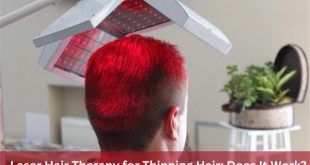Unveiling the Nutritional Potential of Peanut Butter in Addressing Erectile Dysfunction
Introduction:
Erectile dysfunction (ED) affects millions of men worldwide, impacting not only sexual health but also overall well-being and quality of life.
While medical interventions like medications and therapies play a crucial role in managing ED, emerging research suggests that dietary factors may also influence sexual function.
In this exploration, we delve into the potential benefits of peanut butter, a popular and nutritious food, in the context of erectile dysfunction. If you have been diagnosed with male erectile dysfunction, you must take generic medications such as Vidalista 40 and Vidalista 60.
Understanding Erectile Dysfunction:
Erectile dysfunction is characterized by the consistent inability to achieve or maintain an erection sufficient for satisfactory sexual performance.
While various factors contribute to ED, including physical, psychological, and lifestyle-related aspects, vascular health is particularly significant.
Reduced blood flow to the penis, often associated with conditions like cardiovascular disease and diabetes, is a common underlying cause of ED.
Nutritional Components of Peanut Butter:
Peanut butter, a staple in many households, is renowned for its rich flavor and creamy texture. Beyond its culinary appeal, peanut butter boasts an array of nutritional components that may have implications for sexual health:
Protein:
Peanut butter is a source of high-quality protein, essential for muscle repair and maintenance. Adequate protein intake supports overall health and may indirectly contribute to improved sexual function.
Proteins serve as the structural foundation for cells, tissues, and organs throughout the body. Collagen, for instance, is a structural protein abundant in connective tissues such as skin, tendons, and bones, providing strength and elasticity.
Healthy Fats:
Despite its calorie density, peanut butter is predominantly composed of monounsaturated and polyunsaturated fats, which have been linked to cardiovascular health.
These fats help lower LDL (bad) cholesterol levels and may promote better blood flow, potentially benefiting erectile function.
Consuming healthy fats, particularly monounsaturated and polyunsaturated fats, can help improve cardiovascular health by reducing levels of LDL (bad) cholesterol and triglycerides while increasing HDL (good) cholesterol.
This balance is essential for maintaining healthy blood vessels and reducing the risk of heart disease, stroke, and other cardiovascular conditions.
Vitamins and Minerals:
Peanut butter contains essential vitamins and minerals, including vitamin E, magnesium, and potassium. Vitamin E, in particular, acts as an antioxidant, protecting cells from damage and supporting vascular health.
Arginine:
Peanuts are naturally rich in arginine, an amino acid that plays a role in nitric oxide synthesis. Nitric oxide is a vasodilator, meaning it relaxes blood vessels, promoting improved circulation—including to the penis—and potentially enhancing erectile function.
Research on Peanut Butter and Erectile Dysfunction:
While limited studies directly investigate the relationship between peanut butter consumption and erectile function, research on related nutritional factors provides insight into its potential benefits:
Cardiovascular Health:
Numerous studies have demonstrated the cardiovascular benefits of nut consumption, including peanuts. Improved cardiovascular health is closely linked to better erectile function, as adequate blood flow is essential for achieving and sustaining erections.
Arginine Supplementation:
Some studies have explored the effects of arginine supplementation on erectile function, with promising results. As a natural source of arginine, peanut butter may offer similar benefits, although further research is needed to establish a direct link.
Overall Diet Quality:
The Mediterranean diet, characterized by high consumption of fruits, vegetables, whole grains, nuts, and olive oil, has been associated with a reduced risk of ED.
Incorporating peanut butter into a balanced diet aligned with Mediterranean principles may contribute to overall improvements in sexual health.
Practical Considerations:
While peanut butter shows promise as a potential dietary adjunct in managing erectile dysfunction, it’s essential to approach consumption mindfully:
Portion Control:
Peanut butter is calorie-dense, so moderation is key. Opt for natural varieties without added sugars or hydrogenated oils, and be mindful of portion sizes to avoid excessive calorie intake.
Dietary Diversity:
While peanut butter offers nutritional benefits, it’s crucial to maintain a varied diet rich in fruits, vegetables, whole grains, lean proteins, and healthy fats. Incorporating a range of nutrient-dense foods supports overall health and well-being.
Individualized Approach:
Dietary recommendations should be tailored to individual preferences, dietary restrictions, and health considerations. Consulting with a registered dietician or healthcare professional can provide personalized guidance based on specific needs and goals.
Conclusion:
In the quest to address erectile dysfunction, exploring dietary interventions alongside medical treatments holds promise for optimizing sexual health and overall well-being. Peanut butter, with its nutrient-rich profile and potential cardiovascular benefits, emerges as a noteworthy contender in this endeavour.
While further research is warranted to elucidate its specific effects on erectile function, integrating peanut butter into a balanced diet may offer holistic support for individuals navigating this common and often complex condition.
By embracing a multifaceted approach encompassing nutrition, lifestyle modifications, and medical interventions, individuals can empower themselves to reclaim vitality, intimacy, and satisfaction in their lives.







